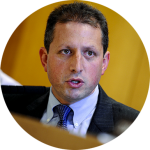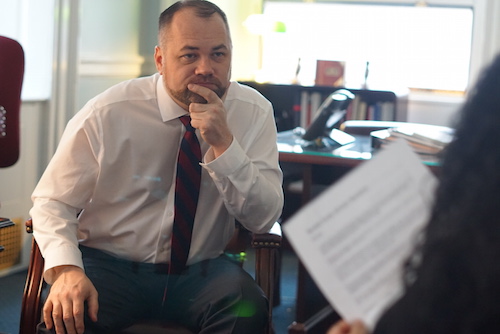A detailed report unveiled by City Council Speaker Corey Johnson (D-Manhattan0) yesterday that outlines the failures of the city’s long-term planning processes is scheduled to be introduced in the council today as part of legislation for a comprehensive 10-year city planning cycle.
Amidst the seven key issues, the report identifies in the city’s current planning processes is that it as scattered across over a dozen of siloed plans and reports.

“As we seek to recover and rebuild in the wake of COVID-19, our increasingly contentious and unproductive planning regime will continue to undermine our ability to equitably respond to the challenges we face. We must adapt and grow. It’s time for a new approach,” said Johnson.
Dubbed the Planning Together framework, the new approach would require the city to streamline its planning mandate into a single process and connect the city’s policy and land use planning to budget priorities.
It also seeks to take a more holistic perspective for what should be included in long-term planning. One requirement directs that the city regularly review and report on the city’s current conditions, including problems of economic and racial disparities and the affordable housing and homelessness crisis.
It would also require the city to regularly review and update zoning policy based on the success or failure rate of them in real-time.



City Council Member Stephen Levin (D-Boerum Hill, Brooklyn Heights, Brooklyn Navy Yard, Downtown Brooklyn, Dumbo, Fulton Ferry, Greenpoint, Vinegar Hill, Williamsburg) spoke to this point and commented that this legislation is long overdue.
“It is time to stop repeating the old ways of doing things, especially our zoning process,” Levin said. “Land use and zoning decisions will be connected to the city’s budget priorities and long term housing and affordable housing goals, centering equity and racial and economic justice.”
The report outlined seven points where the current plans have strayed. Some include a lack of proactive planning that has failed to properly invest in communities and a lack in coordination across city agencies.
Councilmember Brad Lander (D-Cobble Hill, Carroll Gardens, Columbia Waterfront, Gowanus, Park Slope, Windsor Terrace, Borough Park, Kensington) commented that it’s finding the balance between community and city that will help improve the city as a whole.
“At this critical juncture in our city’s history, developing a comprehensive planning framework together can help us set course for a just and durable recovery,” Lander said, “By balancing the needs of our communities and of the city as a whole, we can secure a more vibrant, equitable, and sustainable city to share with generations to come.”
Councilmember Ben Kallos (D-Manhattan) agreed that the most effective way is to start planning proactively.
“Whether it is increasing and improving coordination in all our city agencies or streamlining long-term planning processes for better efficiency, creating a new ten-year comprehensive planning will be crucial to making New York City the best city it can possibly be over for every resident over the next decade,” he said.
The planning framework was designed specifically to help correct neighborhood disparities in communities of color, a point Council Member Antonio Reynoso (D-Williamsburg, Bushwick, Ridgewood) spoke to.
“As a city grappling with extreme challenges due to the COVID-19 pandemic, we must begin to rebuild, but we cannot move forward until we establish a process that is equitable and addresses past injustices toward marginalized communities,” he said.
“This work will not be easy but I want to thank the Speaker for highlighting the need to plan for the pressing issues of our time in a more holistic way,” added Council Member Francisco Moya (D-Queens).








